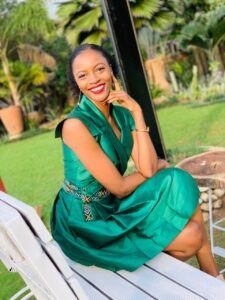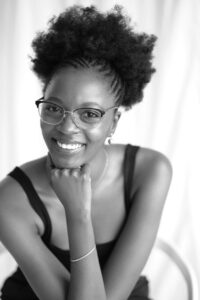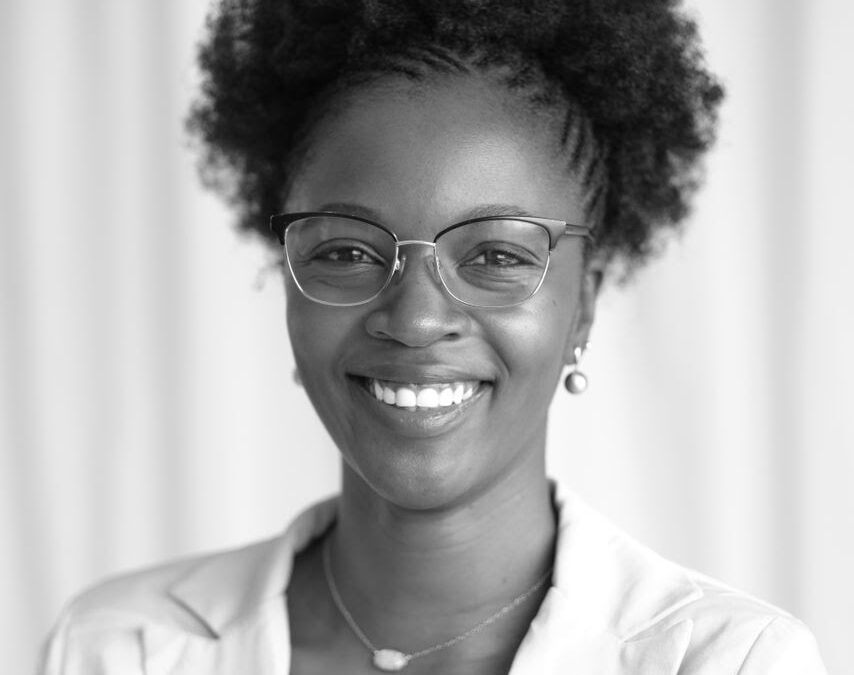Interviewed by: Amen Mugisha
Nancy Ndekwe is an ACU and COBA alumnus. She is from Kigali, Rwanda, and is currently working with Hence Technology, a tech company in Kigali. Nancy has nearly five years of experience in recruitment and career advising with The Bridge program in Rwanda. She is passionate about impact-based solutions, diversity and gender inclusivity, leadership and personal development, as well as storytelling and highlighting achievements of African companies. We are so honored to highlight Nancy in our Lytle Light spotlight.
What has your career journey been?
So, I graduated in 2016. I did a couple of trainings before moving back to Rwanda that were related to work. Most of the training was around career advising, and the program is called Career Direct in California. I then moved back to Rwanda in 2017, and from there, I started with an office with just two people. We grew to a team of nine just four and a half years later. Within Bridge2Rwanda, I started as a career advisor, moved to a senior career advisor, and then to the head of recruitment and personal development. Four and a half years later, I moved to Hence technology which is a software company based in London, and I do business development management. So that’s my career journey, and I am still growing.
How do you connect your faith to your work?
I think it’s not an either-or question. I live my faith every day with my values, how I see people, how I interact with people, with how I think about things, and I guess my faith just grounds me in a sense where when things are hard, I am able to pray about it. I am also very empathetic, so I feel like that’s a gift that I was given to be able to see things through a different eye, and it’s not a coincidence. I think that my faith helps me to connect more to the relationship that I have with Christ but then also the relationship that I have with others. I truly believe that God is love, Christ is love, and that’s what he taught us when he came to Earth and died for our sins. That is what I try to do as well with living my day-to-day life, and it doesn’t mean that sometimes it’s not going to go down or plateau, but it’s a journey, and we keep at it. I see faith as a journey, and you keep at it, but amongst everything, I think for me love is what comes out, and that’s what I’m taught to treat people.
What do you enjoy doing outside of work?
Traveling, eating, hanging out with friends. I am also an introvert, so reading, watching shows, watching movies, just spending quality time with the people that I love, friends, family, and taking time for myself. I need that time to recharge so that can even be staying home and reading or organizing and cleaning.

Have you had mentors in your life? If so, how have they influenced your life?
Yes, I have had mentors in every stage of my life. When I say stage of my life, I still feel like there are more stages coming up. I mean, you go from being a teenager to getting into college from college to entering the professional life and then from there just growing in your career. Throughout those different stages, I have been able to find mentors, luckily because it’s really hard right now. I haven’t been able to find a mentor because I’m in the tech world, and you don’t have a lot of women leading, especially in Rwanda, in these specific fields. That is something that I am working on, but I’ve also realized that it’s important not to just have mentos in your field of people, but people who just push you to always be better and everything that you do. So have I had mentors? Yes, have they influenced my life? Absolutely, because they see things in a different way, and sometimes they just push you to pay attention to a couple of things or stick to what you’re doing well, and it’s good because it’s not just with your professional life, but day to day life as well.
If a student wanted to get a mentor, what would they do?
Okay, so I’m going to take this as someone being in Rwanda. That is the situation that I am in, and so that is the situation I will lean into. I think that abroad is a lot easier because you have all these societies and you have people who are willing to do that for you. I am not saying that in Rwanda, you don’t, it’s just as women in specific fields, it is really hard. Sometimes you have more work than life balance, but I think you just have to reach out. The beauty now is that we have social media; you have people in different fields that you have seen before; it can be a former student, someone you’ve interned with, a parent who has a friend that you know, it can be anyone really. I think those are the people that you know exactly why you want them to mentor you. It is about being bold enough to reach out and state your intentions, why you need mentoring, and why you they are the right person to tell you. First, do the research on what you are looking for, what you think you need, and then from there, start searching for people that meet whatever it is that you’re looking for. Be bold and just go for it. At the end of the day, you are going to find the right mentor for you and you are still learning through the process.
What do you wish you knew as a student?
I wish I knew that everything was going to be okay and that I was going to land where I was meant to land because, with God, there are never coincidences. It’s not a coincidence you were meant to be where you’re meant to be and what’s meant for you happens. I feel like one of the things for me that was really hard was just deciding what my next step would be if the friends I had were the right ones, if I was doing the right thing, was it fair to travel and explore in college, and now looking back I am glad because I got to grow so much, discover myself and the friends that I have to this day are sisters. Yes, we are in different countries; my friends and I call our relationship a long-distance relationship, and that hasn’t changed whenever we can travel and see each other. Obviously, with Covid, that’s different. Just trust your instincts with the people you choose, especially if you do it with the right motivation, and then also with life choices. God’s got you, and I know that sometimes it’s really hard to let go in such instances, but you will end up where you need to be and you will be okay. Trust the process, trust in your instincts, pray about it; you will have made the right decision.
What is your philosophy of leadership?
I think being a servant leader is the best philosophy because that encompasses everything. It doesn’t just go for professionalism, but also encompasses your emotions, how you live life, and how you treat people. I feel like that is the best representation and philosophy of leadership. Also, being bold and sticking to what you think, but also being able to take in people’s considerations. I think that that’s the whole point of servant leadership.
What skills do you think have been beneficial to your work?
In school, I learned about meeting people, being able to talk to people, staying back, and just listening. Then being analytical because you have to be analytical and take a minute to assess and see what the right thing is and how to go about doing it. The other skill that was enhanced by being an international student being in a different country is just being patient with people and taking a minute to observe and interact, listening while you’re actually hearing not just listening for the sake of listening. Personality-wise, empathy has been one on top of my list. I am also an Includer, and this is something that as you keep growing and you’re going to know yourself, these are the kinds of things that you are going to acknowledge. I think those two – empathy and being an Includer – have been something that have helped me in day-to-day work and have been beneficial to my work.

What recommendations of books or activities would you give to students who want to grow as leaders?
The first book I can think of is Outliers by Malcolm Gladwell. If you want to read about leadership, I think Brene Brown’s Daring Greatly because it just teaches you to understand who you are and vulnerability and how that affects people in society.
In the past two and a half years, I have been on a journey of reading African authors and women, and it’s really nice to read about what I can relate to. For example, in Nigeria, they are talking about kids playing with marbles on the ground, and I can relate to that. I am not saying that all the other books you cannot relate to, but especially when you’re younger, it’s important to have books that have our experiences even though they might be different.
Lastly, What is a fun fact about you?
I do not know if it’s fun, but I’ve been planning to go skydiving since 2017. Eventually, in the next two years, I hope that I will go skydiving. So I do not know if that’s a fun fact about me because I haven’t done it yet, but this is me prophesying.

